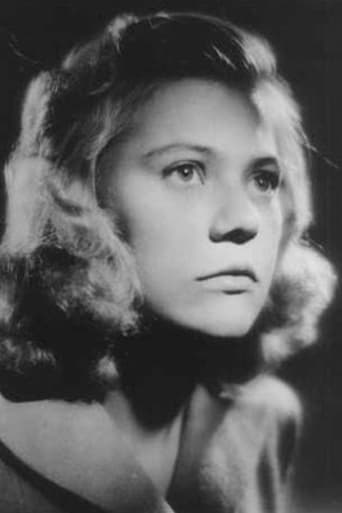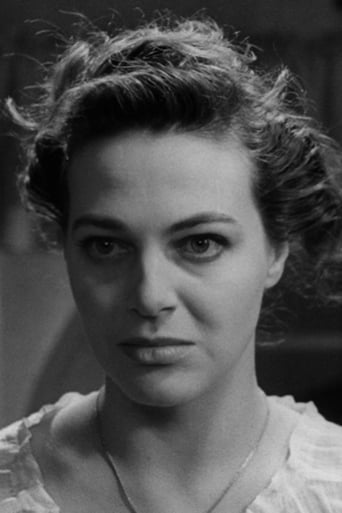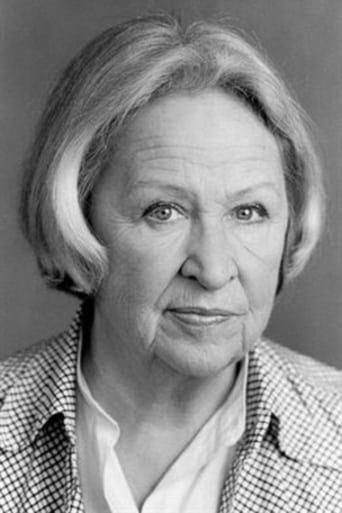Wordiezett
So much average
Dorathen
Better Late Then Never
Odelecol
Pretty good movie overall. First half was nothing special but it got better as it went along.
Chirphymium
It's entirely possible that sending the audience out feeling lousy was intentional
Richard Chatten
Set in Gothenberg, 'Hamnstad' was Bergman's fifth feature film, his first with cameraman Gunnar Fischer, and concludes his early "neo-realist" phase - there's still plenty of documentary footage of blue collar working life and its all rather more sordid than his later films, including a harrowing section involving an abortion - but much more sparing use is made of Erland von Koch's than hitherto in anticipation of the more laid-back approach he was soon to adopt.
oOoBarracuda
After making it through many of the more well-known Ingmar Bergman films, I've turned my attention to early Bergman. This Ingmar Bergman retrospective has certainly been the one with the loosest viewing schedule, which isn't to the project's detriment. With a filmmaker like Ingmar Bergman, one with pronounced themes to his films, it is interesting to see how he carries out those themes in each period of his work. In his 1948 film, Port of Call, Bergman examined the intricacies of human existence through the eyes of a suicidal factory worker desperate to escape the weight of her overbearing mother. Starring Nine-Christine Jönsson and Bengt Eklund, Ingmar Bergman perfectly explores the struggle of living a life free of the strains of complicated human relationships and the prisons of our own minds that many are often unable to escape from.Berit (Nine-Christine Jönsson) recently released from reformatory school following an attempted suicide, is back under the thumb of her manipulative and overbearing mother. She sees a way out when she meets Gösta, a man she is able to convince is the first one to experience her passions. Berit, unable to properly experience love, sees Gösta as, not only a way to break free from her mother's influence, but also to escape her laborious job at the factory. A marriage would also prove to Berit's social worker that Berit was establishing a stable foundation for herself and would be free from the threat of returning to the reformatory school. Her plans for freedom with Gösta are foiled, however, when he cannot forgive her past.Family troubles, especially overbearing or neglectful parents are a constant theme in the films of Ingmar Bergman and apparently have been since his earliest features. The intricacies of familial disconnect are fascinating, and Bergman tunes into those intricacies in a way I have seldom seem from other filmmakers. One of my favorite aspects of Bergman films is how he illustrates the brokenness of people, and how that brokenness contributes to their inabilities to form successful relationships. I continue to be amazed how keenly Bergman tapped into the human spirit. Another mainstay in Bergman's filmography is how often he depicted people working jobs they don't like in order to maintain lives that were personally unfulfilling. Much like in Summer with Monika, our protagonists in Port of Call worked jobs that robbed them of their essential human fulfillment and left them in a constant state of emotional exhaustion. The only place to relieve the stresses of the world is in the cinema. The scene in which Berit has removed herself from every disappointment of existence when she is freely laughing in a crowded theatre was extraordinary. It reminded me of the scene in Louis Malle's Au revoir Les Enfants where the only place everyone was equal and could enjoy themselves was during a screening of Charlie Chaplin's The Immigrant. Cinema as an artistic medium has relieved the pressures of existence since its inception, and Ingmar Bergman films are no exception to this rule.
Claudio Carvalho
The sailor Gösta Andersson (Bengt Eklund) quits sailing in Gothenburg and while walking in the harbor, he rescues the worker Berit Irene Holms (Nine-Christine Jönsson) that has just jumped into the sea attempting to commit suicide. Then he meets his friends and finds a job of dockworker with them. A couple of days later, Gösta and Berit meet each other by chance in a ball and they have sex at her house. Gösta dates the needy Berit that falls in love with him and decides to tell her past in a reformatory school and her former relationships to him. But the twenty-nine year old man is not ready to forget the past of Berit and forgive her. "Hamnstad" is the fifth Bergman's film with a bitter and bleak love story of a needy and lonely girl raised in a dysfunctional family with a domineering mother that is sent to a reformatory school, and her boyfriend that likes her, but can not forgive her past. This is the typical anti-Hollywood love story, with themes that seems to be ahead of time (for a 1948 film), such as abortion and one night stand between the couple that has just met each other. My vote is eight.Title (Brazil): "Porto" ("Seaport")
J. Spurlin
Berit is a factory girl fresh out of reformatory school and fresh from an attempted suicide by drowning when she meets a sailor named Gösta at a dance club. He beds her down that night, and later, when the two become lovers, allows himself to assume that he was the first man to do so. Meanwhile, Berit is desperate to be free: free from the badgering and manipulation of the mother she is forced to live with, free of the dirty work of the factory and free of her social worker and the constant threat of returning to reformatory school. Her already unhappy life is complicated when an old friend from the school desperately needs her help.Personal freedom is a major theme of this lovely, bleak, but not pessimistic, early Ingmar Bergman movie. We yearn for Berit to find freedom from her unpleasant life, and most of all freedom from loneliness, just as we hope Gösta can free himself from jealousy and the specters of long-gone rivals for his affections.





